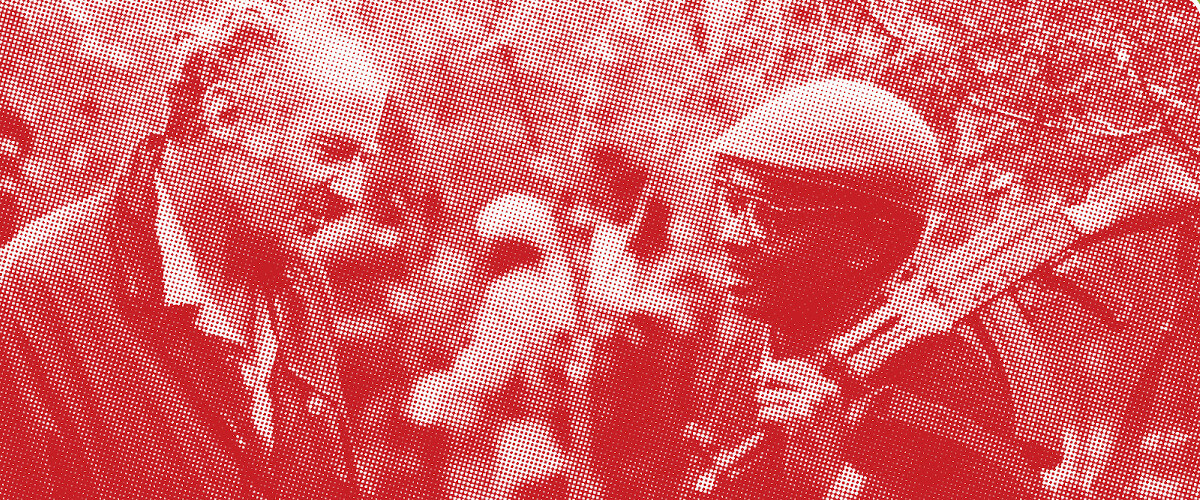janeiro, 2023

Detalhes do Evento
Conference that intends to frame the individual activism in the most recent scholarship that conceives the solidarity against Portuguese colonialism as part of a transnational movement. Deadline: 25 July
Ver mais
Detalhes do Evento
Conference that intends to frame the individual activism in the most recent scholarship that conceives the solidarity against Portuguese colonialism as part of a transnational movement. Deadline: 25 July
Anticolonial Struggle, Transnational Solidarity and Agency of Individual Actors:
Dialogues with the Portuguese Colonies, 1945-1975
Basil Davidson, a British journalist, took interest in African history from 1951 onward and went on to write about the struggle of the national liberation movements from Portuguese colonies. By the middle of the decade, Ben Barka and other Moroccan students engaged in the struggle for the independence of their country encountered Aquino de Bragança, Edmundo Rocha and Marcelino dos Santos in Paris, where they were pursuing their university studies, and these contacts facilitated later the establishment of the Conference of Nationalist Organizations of the Portuguese Colonies’ (CONCP) permanent Secretariat in Rabat. Jean Mettas, a French anticolonial activist during the Algerian war for independence, came across Amílcar Cabral in Dakar, in 1962, and due to their friendship was one of the first activists to publicize in France the struggle for independence of Guinea-Bissau. Years later, in 1967, at a dinner organized by South African exiles in Kenia, the African American lawyer Robert van Lierop met Eduardo Mondlane and together they conceived the idea of producing, for American audiences, the film A Luta Continua about the armed struggle in Mozambique.
These are few examples of how personal connections, established in places serving as hubs of decolonization–for instance Lisbon, Paris, London and Rome, but also the newly-independent African countries–were instrumental for the solidarity towards the struggle for independence of Portuguese colonies. Not only the liberation movements actively sought to cultivate personal contacts to internationalize their liberation struggles, but a wide variety of actors from across the globe voluntarily engaged in complex relationships with the anticolonialists from Portuguese colonies. Journalists, academics, film-makers, missionaries, priests, doctors, intellectuals and students, to name a few, became activists, fuelling anticolonial and anti-racist discourses for international audiences and attracting material and non-material resources for the liberation movements. Even Portuguese opponents to the Estado Novo regime, exiles, emigrants and military deserters living for instance in Algeria, France, Brazil and Morocco played a role in the international debate on Portuguese colonialism and interacted with the liberation movements. In many circumstances, the activists were at the centre of campaigns to support the national liberation movements, acting on an individual capacity. Sometimes they brought with them a web of connections, helping to create formal and informal networks of support such as the anticolonial solidarity groups.
Nevertheless, while the role of governments, non-governmental organizations, and international organizations in the solidarity towards the liberation movements from Portuguese colonies has received an increasing attention, the agency of individual figures needs to be explored in greater depth to strengthen our knowledge on the subject. To expand the parameters of inquiry on solidarity to individual players who engaged in the support of the struggle against Portuguese colonialism from 1945 until 1975, the Institute of Contemporary History — NOVA University of Lisbon and the University of Florence will organize a conference to be held in Lisbon between 26-27 January 2023. The conference intends to frame the individual activism in the most recent scholarship that conceives the solidarity against Portuguese colonialism as part of a transnational movement, nurtured by multiple ties and interactions across state frontiers.
>> 📎 Download full programme (PDF) <<
Call for papers
>> 📎 Download the call for papers (PDF) <<
Proposals for 20-minute presentations on issues related to individual solidarity will be accepted, including but not limited to the following topics:
-The schemes, plans of action and approaches devised by individual figures to link with the liberation movements.
-The many different forms of connections established between individual activists and the liberation movements.
-The networks of support to the liberation movements shaped by individual connections.
-The ways in which countries around the world–specially the newly-independent African countries–became platforms for contacts between the liberation movements and individual actors.
-The strategies used by individuals to influence public opinion, advance the cause of the liberation movements and transform the policies of their own governments.
-The personal trajectories of the individual activists and the paper trail they produced.
Abstracts of presentations (300 words) and biographical notes (250 words) should be sent to: anticolonialstruggleactors@gmail.com
Deadline for submission of abstracts: 25 July 2022
Notification of acceptance: 15 September 2022
Working language: English.
The organizers foresee the publication of the communications.
Keynote speaker
Rob Skinner (University of Bristol)
Organizing Committee
Alba Martín Luque (University of Florence)
Aurora Almada e Santos (IHC — NOVA University of Lisbon / IN2PAST)
João Miguel Almeida (IHC — NOVA University of Lisbon / IN2PAST)
Miguel Filipe Silva (IHC — NOVA University of Lisbon / IN2PAST)
Rebeca Ávila (IHC — NOVA University of Lisbon / IN2PAST)
Scientific Committee
Alda Romão Saúte Saíde (Universidade Pedagógica de Maputo)
Ângela Coutinho (IPRI — NOVA University of Lisbon)
Conceição Neto (Universidade Agostinho Neto)
Eric Burton (University of Innsbruck)
Jean-Michel Mabeko-Tali (Howard University)
Julião Soares Sousa (CEIS20 — University of Coimbra)
Víctor Barros (IHC — NOVA University of Lisbon / IN2PAST)
Picture: Basil Davidson and Agostinho Neto in Moxico, Angola (© Basil Davidson, 1970)
Tempo
26 (Quinta-feira) 10:00 am - 27 (Sexta-feira) 5:00 pm
Localização
Dedicated Zoom link
Organizador
Institute of Contemporary History — NOVA School of Social Sciences and Humanitiescomunicacao.ihc@fcsh.unl.pt Avenida de Berna, 26C - 1069-061 Lisbon
